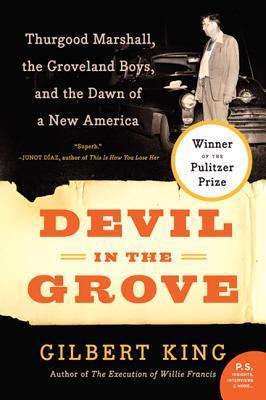The case was key to Marshall’s perception of himself as a crusader for civil rights, as a lawyer, willing to stand up to racist judges and prosecutors, murderous law enforcement officials, and the Klan in order to save the lives of young men falsely accused of capital crimes—even if it killed him. And Groveland nearly did.
Welcome back. Just a moment while we sign you in to your Goodreads account.


